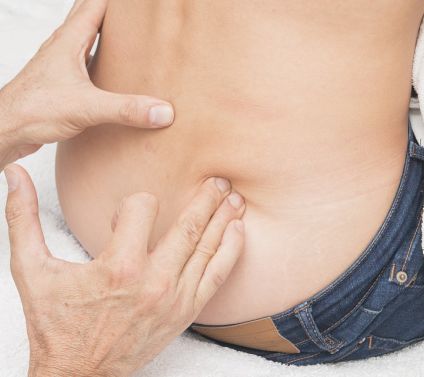Four Benefits of a Cold Therapy Machine for Hip Replacement Recovery

Cold therapy is extremely useful in speeding up recovery post any orthopedic surgery. Now, hip replacement surgery is one of the major operations involving vital bones that affect mobility. Patients recovering from this surgery can benefit from an extra measure to aid their recovery.
One of the most useful measures is to administer cold therapy in the hip area to ensure the speedy healing of surgical wounds. The best way to deliver it is through a cold therapy machine.
Cold Therapy for Hip Replacement Recovery
Hip replacement surgery is usually the last option to correct a painful hip joint that makes everyday living difficult. It involves the removal of painful hip joint sections and replacing them with artificial parts constructed with metal or other materials.
For successful outcomes of surgeries, it is also crucial to practice good post-operative care as recommended by your doctor. Along with mild exercises, cold therapy is also often included in the recovery program of orthopedic surgery patients.
Cold therapy is the use of freezing temperatures to speed up recovery post orthopedic surgeries or injuries. The cold is applied over the surgical wounds to help reduce the inflammation and the pain. Due to the effect of the cold temperature, the nerve communication stops in the area of application. It then leads to a temporary loss of blood supply to the same site. Without a blood supply, the swelling is not sustainable. As the swelling goes down, the pain begins to lessen as well.
Traditionally, cold therapy has been administered with ice packs. However, for benefiting fully from this holistic remedy, it is better to use a cold therapy machine to deliver it.
Benefits of Using a Cold Therapy Machine for Hip Replacement Recovery
There are four benefits of using a cold therapy machine to aid recovery of patients after hip replacement surgery.
1. It helps safely deliver cold therapy
Using a cold therapy machine is the best way to deliver cold therapy in a safe manner post a surgery. With machines, you don’t need to worry about water dripping on your surgical wounds. When you use ice packs, it is always a possibility that water from melting bags can get inside the surgical wound and increase your chances of contracting the post-operative infection. Using a machine ensures that there are no post-operative complications due to infections contracted due to cold therapy.
If you use cold therapy machines from brands like IsoComforter, you can benefit from extra safety features such as the ridges in the healing pad to prevent injuries from freezing temperatures. IsoComforter machines are designed using the patented Iso Tube technology for delivering cold therapy efficiently and safely.
2. It helps the patients to administer cold therapy in the most comfortable way
Using a cold therapy machine is comfortable and convenient. It enables patients to continue to use cold therapy consistently. Consistency is paramount when it comes to benefiting from cold therapy. Unless it is convenient to administer therapy, few patients are likely to continue with it. For example, holding an ice pack over the hip multiple times a day (for 15-20 minutes at a time) cannot be comfortable for anyone.
It is also effortless to use a cold therapy machine. You need to simply fill the tank with water, wrap the healing pad around the hip, and switch on the machine. IsoComforter machines do not even require refilling the tank with water very often.
3. It helps with speedy recovery
Consistent delivery of cold therapy helps with speedy recovery of patients post their hip replacement surgery. When the pain is reduced sooner than expected, patients can also begin their physical therapy at the earliest. With physical therapy, patients can begin to regain mobility in their hip joint without any delays.
4. It helps patients be less reliant on pain medicines
With pain management in a natural way and help with speedy recovery, use of cold therapy machines help patients not rely on medicines for relief. Pain medicines can cause dependency in patients and lead to other health problems.
